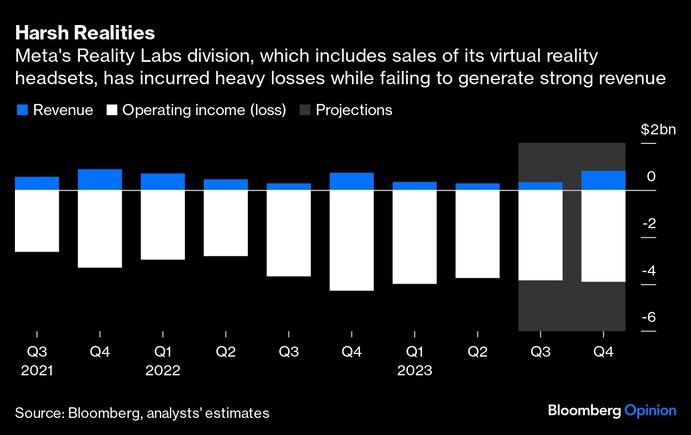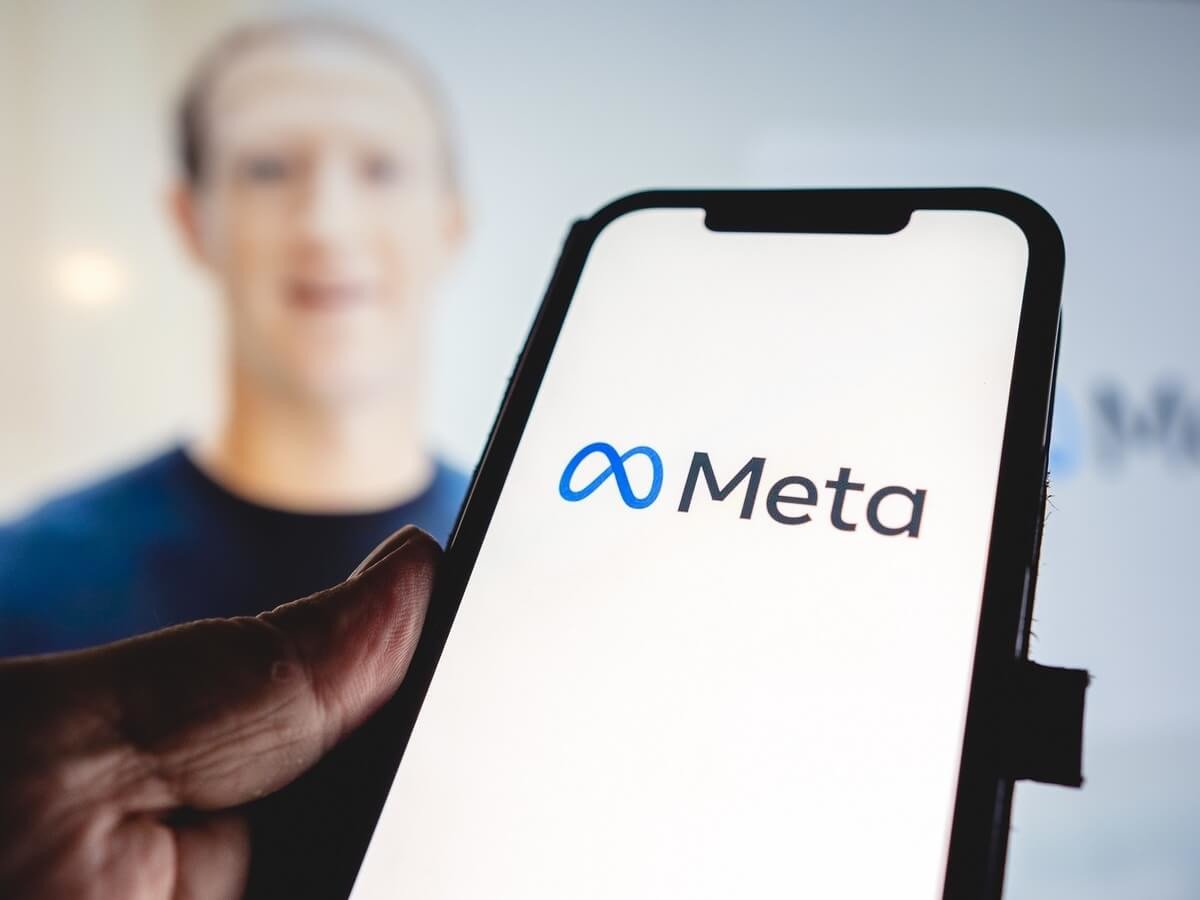Facebook boss Mark Zuckerberg’s metaverse push has so far cost his company $21 billion, with little to show for in terms of real results, according to a recent Bloomberg opinion piece.
For the massive amount of money spent on developing a metaverse, Zuckerberg and Facebook-owner Meta have only managed to sell some 20 million units of the Quest virtual reality (VR) headset since 2019, Bloomberg technology columnist Dave Lee said in the piece.
He added that only around 200,000 users are active on Meta’s flagship VR experience Horizon Worlds, a miniscule number compared to the massive amount of money spent on developing Meta’s hyped metaverse experience.
“All this prompts an obvious question: Just how much money is Zuckerberg prepared to spend to make his Metaverse successful,” the author asked, while sharing a chart that showed the metaverse-related losses over time:

Ad revenue still strong
The reason why Zuckerberg has been able to throw money at his metaverse project despite the massive losses is that Meta’s original advertising business remains strong, showing double-digit revenue growth for the first time since late 2021.
The strong growth in ad revenue has provided the distraction needed to keep investors from worrying too much about the $21 billion spent on metaverse projects, the piece argued.
Meanwhile, revenue from Meta’s metaverse-related business, which includes revenues from sales of headsets, apps and related services, sell between 2021 and 2022, and is expected to fall even further this year.
Still, Zuckerberg does not appear overly concerned about the numbers, and said as recently as last week that he believes they will improve.
“A lot of investors might want to see us spending less here in the near term. My view is that we are leading in these areas. I believe that they’re going to be big over time,” the piece cited the Meta boss as saying.
Meta not giving up on metaverse
In conclusion, Lee noted that it appears clear that Meta is not going to give up on the metaverse, partly because it would make its name change to Meta “rather awkward.”
He added that the bigger concern is that a failed Metaverse push would weaken Zuckerberg’s position as CEO of the company, although that position has improved as of late with the success of Meta’s Twitter-clone Threads.
“With a small team, no advertising and only a few months of development, it took Threads less than an hour to attract more users than Horizon Worlds has managed in two-and-a-half years,” Lee pointed out, before finally suggesting that a greater focus on Threads would be far wiser than “chasing the metaverse.”
Facebook boss Mark Zuckerberg’s metaverse push has so far cost his company $21 billion, with little to show for in terms of real results, according to a recent Bloomberg opinion piece.
For the massive amount of money spent on developing a metaverse, Zuckerberg and Facebook-owner Meta have only managed to sell some 20 million units of the Quest virtual reality (VR) headset since 2019, Bloomberg technology columnist Dave Lee said in the piece.
He added that only around 200,000 users are active on Meta’s flagship VR experience Horizon Worlds, a miniscule number compared to the massive amount of money spent on developing Meta’s hyped metaverse experience.
“All this prompts an obvious question: Just how much money is Zuckerberg prepared to spend to make his Metaverse successful,” the author asked, while sharing a chart that showed the metaverse-related losses over time:

Ad revenue still strong
The reason why Zuckerberg has been able to throw money at his metaverse project despite the massive losses is that Meta’s original advertising business remains strong, showing double-digit revenue growth for the first time since late 2021.
The strong growth in ad revenue has provided the distraction needed to keep investors from worrying too much about the $21 billion spent on metaverse projects, the piece argued.
Meanwhile, revenue from Meta’s metaverse-related business, which includes revenues from sales of headsets, apps and related services, sell between 2021 and 2022, and is expected to fall even further this year.
Still, Zuckerberg does not appear overly concerned about the numbers, and said as recently as last week that he believes they will improve.
“A lot of investors might want to see us spending less here in the near term. My view is that we are leading in these areas. I believe that they’re going to be big over time,” the piece cited the Meta boss as saying.
Meta not giving up on metaverse
In conclusion, Lee noted that it appears clear that Meta is not going to give up on the metaverse, partly because it would make its name change to Meta “rather awkward.”
He added that the bigger concern is that a failed Metaverse push would weaken Zuckerberg’s position as CEO of the company, although that position has improved as of late with the success of Meta’s Twitter-clone Threads.
“With a small team, no advertising and only a few months of development, it took Threads less than an hour to attract more users than Horizon Worlds has managed in two-and-a-half years,” Lee pointed out, before finally suggesting that a greater focus on Threads would be far wiser than “chasing the metaverse.”
